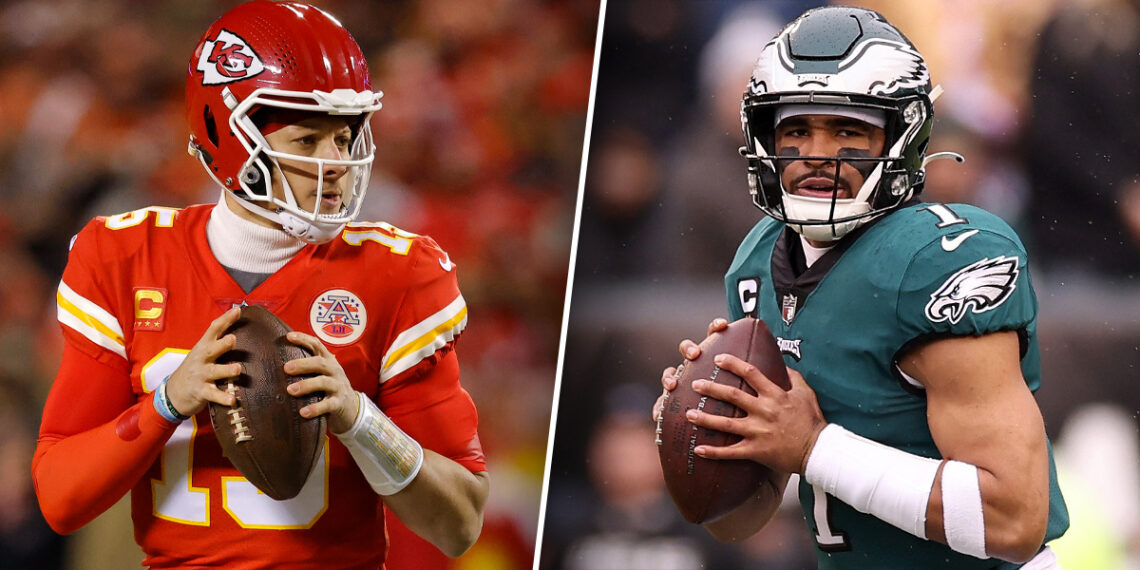The National Football League (NFL) has been around for a long time, approximately 103 years, and a number of players, especially quarterbacks (QB), have come and gone.
The quarterback position is arguably the most celebrated one on a team in the sport, but over the years, black athletes were denied the opportunity to play in this position.
According to the Institute for Diversity and Ethics in Sport (TIDES), of the 1696 players in the NFL this season, 57.5% are black, and only 11 of them are starting as quarterbacks for their respective teams.
In the league’s early days, Fritz Pollard became the first black player to play for the Akron Pros in 1920. By 1926, only five NFL players were black, and in 1927, the number nosedived to just one [Joe Lillard].
Following the ban imposed on black athletes from competing in the NFL due to a “gentleman’s agreement” in 1932, no player in the league was black, and furthermore, many black athletes were denied the chance to showcase their talents and skills.
Although the ban on black players competing in the NFL was lifted in 1946, none were drafted into the league until George Taliaferro was selected with the 129th pick in the 1949 draft by the Chicago Bears.
Additionally, it took a while for the club owners to warm up to the idea of their teams being led by black quarterbacks as there was a lot of prejudice against NFL teams fielding them, with discussions mostly centered around their thinking capacity, organizational skills, composure, and character rather than their actual abilities.
Former New York Jets quarterback and the NFL’s leader in quarterback rushing yards, Michael Vick, explained the situation surrounding such discrimination while speaking to ESPN in 2017.
“A lot of us aren’t viewed as passers – we’re viewed as athletes. I think it’s unfair and unfortunate,” he said.
Pollard, Lillard, and Taliaferro were joined by Willie Thrower and Charlie Brackins as the only black players in history to have played at the quarterback position at any point in their careers before the Super Bowl era.
However, since the Super Bowl began in January 1967, a host of black quarterbacks have started to command respect as leaders of their teams.
For example, in the 2022–23 season, a record eleven teams had a black quarterback starting for them. Although the number may seem inconsequential, it represents over a third of the league’s 32 franchises—a long way from where it all started.
Also, black quarterbacks like Cam Newton (2015), Patrick Mahomes (2018, 2022), and Lamar Jackson (2019) have won four of the last eight NFL Most Valuable Player (MVP) awards.
Likewise, of the 33 quarterbacks drafted into the league in the first round in a little over the last decade, eleven are black.
The stereotype seems to be dwindling more and more as black QBs are starting to get the renumeration their performances deserve. Four of the five largest contracts in American football this season have been awarded to black quarterbacks, with Cleveland Browns Deshaun Watson guaranteed a full $230 million contract over the next five years, joining Mahomes (Kansas City Chiefs), Russell Wilson (Denver Broncos), and Kyle Murray (Arizona Cardinals) on the list, while Jackson (Baltimore Ravens) is expected to be a part of the exclusive club soon.
To commemorate the hard work black athletes have shown over the years in the NFL, history has eventually chosen to repay them as two black quarterbacks will face off in a Super Bowl game for the first time ever when Mahomes and Jalen Hurts (Philadelphia Eagles) battle for supremacy in Super Bowl LVII at State Farm Stadium in Arizona later today.
History.
@JalenHurts | @PatrickMahomes pic.twitter.com/fYQUVQ0hxE
— NFL (@NFL) January 30, 2023
Hurts will join the historic list of Douglas Williams (1988), Steve McNair (2000), Donovan McNabb (2005), Colin Kaepernick (2013), Russell Wilson (2013, 2015), Newton (2016), and Mahomes (2020, 2021) as the black quarterbacks to have started in a Super Bowl match.
He would hope to overcome Mahomes and the Chiefs in his bid to join an exclusive list of black quarterbacks to have won the Super Bowl, a three-man list that already has his opponent [Mahomes] on it following his win in 2020 against the San Francisco 49ers, with Williams and Wilson making up the short list.
Although neither Hurts nor Mahomes are the first black quarterbacks to play in or win the Super Bowl, barring any injuries, their names will be forever etched in NFL history, and for the first time ever, there is an assurance that a black quarterback will lay his hands on the Vince Lombardi Trophy.







